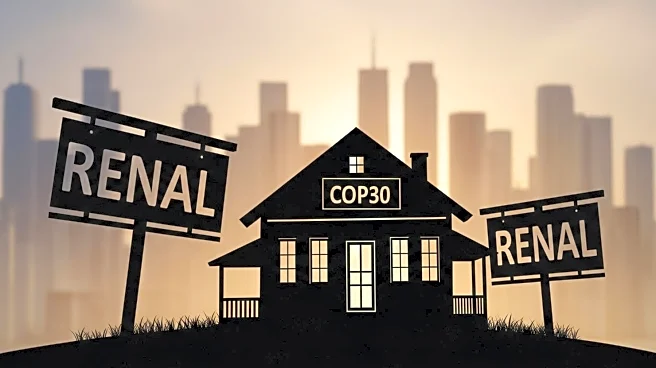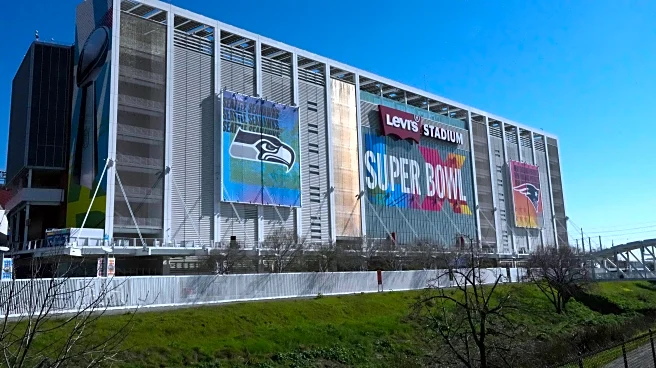What is the story about?
What's Happening?
Residents in Belém, Brazil, are facing evictions as landlords convert apartments into short-term rentals for the upcoming Cop30 climate summit. The event, scheduled for November, has led to a surge in rental prices and a housing shortage, exacerbating existing issues in the city. Many families, including Suelen Freitas, have been forced out of their homes, with landlords prioritizing lucrative deals with foreign visitors. The situation has sparked anger and accusations of exploitation, as poorer residents are displaced to accommodate summit attendees. Local initiatives are emerging to offer affordable alternatives, but the impact on the community remains significant.
Why It's Important?
The evictions in Belém highlight the broader challenges faced by cities hosting international events, where economic opportunities can lead to social displacement. The situation underscores the tension between global interests and local needs, with residents bearing the brunt of the economic shifts. This development raises questions about the ethical implications of prioritizing profit over community welfare, and the need for policies that balance economic benefits with social responsibility. The event has also increased awareness of climate issues among locals, potentially influencing future public discourse and policy.
What's Next?
As the Cop30 summit approaches, Belém residents and local organizations are striving to find solutions to the housing crisis. Efforts to provide affordable accommodations for summit attendees are underway, with community-led platforms gaining traction. The long-term impact on the city's housing market remains uncertain, with potential for increased construction and renovation projects post-summit. The event may also catalyze further discussions on climate change and its local effects, influencing future urban planning and policy decisions.
Beyond the Headlines
The evictions in Belém reflect a deeper issue of how global events can disrupt local communities, raising ethical concerns about the prioritization of economic gains over social stability. The situation may prompt a reevaluation of how cities prepare for international gatherings, emphasizing the need for sustainable and inclusive planning. Additionally, the increased awareness of climate issues among residents could lead to a shift in cultural attitudes, fostering a more engaged and informed public.















